This post is not sponsored, but does contain affiliate links. This means I may earn a small commission when you shop through my links, at no extra cost to you. To learn more, hop over to our Disclosure page. Thank you for your continued support!
how to prepare for an interview
how to prepare for an interview
Interviews are stressful, no matter what. But knowing that you are well-prepared takes it down just enough notches to give you your confidence back.
It’s a huge confidence booster when you know you are as prepared as you can be. Every interview is different and you can’t predict everything, but there are a few key things you can do in order to get your ducks in a row, so to speak. My intent for this post is to outline my system for how I prepare for an interview in a simple, straightforward way. This isn’t everything you ever need to know about interviewing; I didn’t want to bombard you with steps! Just knowing these basics will help you present yourself in your best light and make a great first impression.
Editor’s note: This is a recurring post— it is regularly updated with new information & products!
Job interviews can be stressful, no doubt about that. This is how you can get super prepared and make a great first impression! Share on XTable Of Contents
- Research People & Company
- Anticipate Likely Questions
- List Your 5 Personal Highlights
- Contemplate Your Worst Qualities
- Formulate Questions to Ask Interviewer
- Get In A Positive Headspace
- Arrived Prepared with Supporting Documents
- Dress the Job
- During the Interview
- Tips for Phone Interviews
- More Resources
ANCHOR
Before The Interview
We’ve all heard this one, right? If you take nothing else from this article, let it be this. There are two parts to this- researching the company and researching the interviewer. The later being the one that most interviewees neglect. Think about it this way, it’s not the company who will be sitting in a room interviewing you, it’s a person. And this living, breathing, emotionally-driven person gets to decide whether you progress past this interview.
Learn as much as you can about the person who will be interviewing you. Go into the interview knowing the basics of this person’s background and credentials, and position within the company. Take note of their accomplishments and be able to offer genuine compliments. This will also show that you take interest in the industry, beyond just looking for a job. You want to portray to the interviewer that you are willing to go the extra mile to be effectively prepared for anything that comes your way. If it isn’t clear who will be doing the actual interview, then you’re just going to have to learn about several possible interviewers. But hey, the more information the better!
And it goes without saying, familiarize yourself with the company as much as possible. What products and/or services it provides, its business model, employee structure and hierarchy, notable clients and/or accomplishments, how long it has been in business, etc. Also, it may be helpful to look into any negative PR, legal issues or anything else that may present a touchy subject so you’ll know what to avoid mentioning. You want to spend the interview talking yourself up onto a mountain, not talking yourself out of a hole.
ANCHOR
ANTICIPATE QUESTIONS YOU’LL LIKELY BE ASKED | Expect that you will have to answer the ever popular, “Tell me about yourself.” Be ready to answer questions about your top accomplishments and how you did what you did. Also be ready to discuss your most epic failures without getting spooked. I suggest looking into questions specific to the industry and position you are interviewing for. If you’re feeling overwhelmed already, then I suggest you take a look at this book: Best Answers to the 201 Most Frequently Asked Interview Questions. It’s a really awesome starting point that helps you understand the motivations behind many types of questions so you can answer them effectively.
ANCHOR
Now, prepare as you might, unless you have a crystal ball in your possession, you won’t know precisely what questions you will be asked. So, you may be asking, “How can I prepare answers to questions that I don’t know?” The answer is not to prepare answers, but instead to prepare talking points. When the interviewer asks questions probing for details about your history and what you can do, use these points to help you launch into impactful answers.
Make a list of five important points that will really shine a positive light and make you stand out. These can be awards and accolades, successful projects you were a part of, notable clients you’ve worked with, publications, or even your prestigious education if you are just starting out. Think about times when you faced a big challenge and used your creativity and technical prowess to not just overcome, but to transcend. These are the things that will make you stand out amongst a sea of credentials and awards.
ANCHOR
 CONTEMPLATE YOUR WORST QUALITIES | Like it or not, you will have to talk about your less-than-shining moments. The interviewer will likely ask a question or two about your failures or worst qualities. The purpose of these questions is not find a reason to fail you, but to gauge how you deal with adversity.
CONTEMPLATE YOUR WORST QUALITIES | Like it or not, you will have to talk about your less-than-shining moments. The interviewer will likely ask a question or two about your failures or worst qualities. The purpose of these questions is not find a reason to fail you, but to gauge how you deal with adversity.
You’ll hear a lot of advice about “spinning negatives into positives.” While this is still decent general advice, it is such a common interview tactic that I think it can sound evasive. Think, “I pay so much attention to detail that it slows me down sometimes,” *pats self on back*. The last thing you want is to appear dishonest or self-important. A much more refreshing approach is to think of a quality in yourself that is genuinely not great. For me, it is that I am very shy around new people and I often don’t speak up. Your forthcoming answer will probably surprise the interviewer. The next thing you say is very important. Instead of trying to spin your negative trait into a positive, explain how this negative trait has pushed you to do better, and how you strive to find innovative ways to use it to your advantage.
Likewise, think of a couple of instances when projects didn’t go as planned. Be honest and concise about what went wrong. Then, launch into a detailed breakdown of how you leveraged your creativity in order to fix the problem and come back stronger.
ANCHOR
The purpose here is twofold. Obviously, there will be details about the job that you just don’t know. It is in your best interests to learn everything you can about the job before accepting it. This minimizes the chances of having to quit in the near future because you didn’t know what you were getting yourself into. Personal experience here; this has happened to me and I am not proud of it.
Secondly, asking thoughtful questions lets the interviewer know that you are interested in the job and in the company. Asking reasoned questions shows that you are invested in the job and you are willing to go the extra mile. A job interview is not the place to play hard to get, and apathy will get you nothing but a finger point toward the exit.
I suggest brainstorming a list of 3-5 questions; a mix of technical questions and questions about the company’s culture.
On The Day Of The Interview
ANCHOR
Know that the interviewer ultimately wants to see you succeed. If they were not seriously interested in hiring you, then they wouldn’t have made time for an interview. The interview exists in a positive space. Don’t ruin that positivity by showing up and expecting all to go wrong.
If you feel like a having a safety blanket would help you, make yourself a little cheatsheet. Write down the points you thought about in the sections above and keep the paper with you to look over while you wait for the interview to begin.
ANCHOR
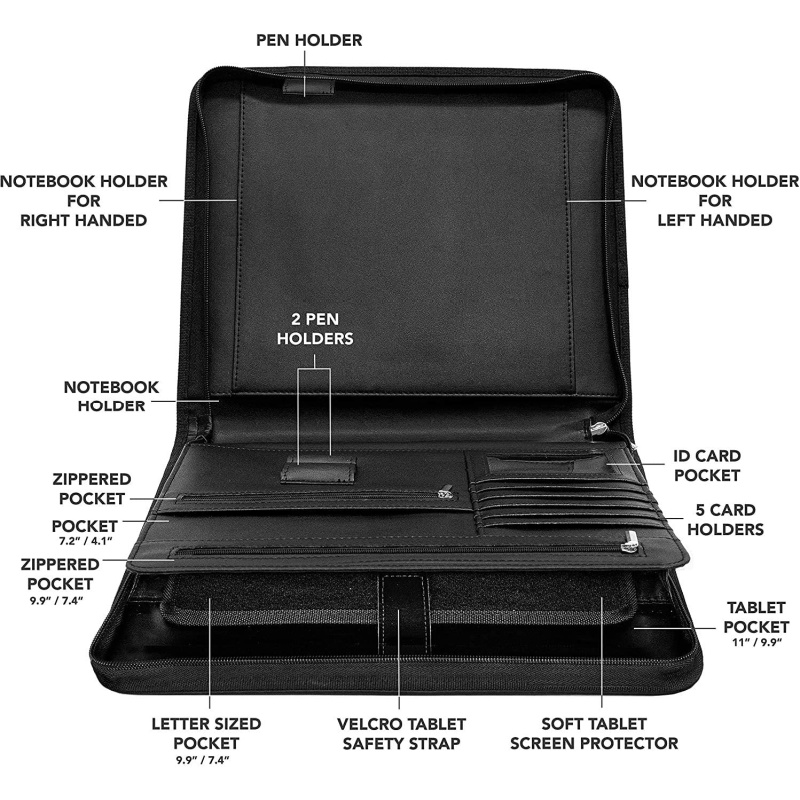 ARRIVE PREPARED WITH SUPPORTING DOCUMENTS | This is not just an interview, this is a networking opportunity. Regardless of whether you end up snagging this job, or not, you will meet people along the way, and you’ll want to be ready to make great first impressions on anybody and everybody. I recommend purchasing a quality document folio for all-in-one storage. Even if you don’t have a ton of “Very Important Papers” to store inside, just carrying it will give you a look of professionalism and organization.
ARRIVE PREPARED WITH SUPPORTING DOCUMENTS | This is not just an interview, this is a networking opportunity. Regardless of whether you end up snagging this job, or not, you will meet people along the way, and you’ll want to be ready to make great first impressions on anybody and everybody. I recommend purchasing a quality document folio for all-in-one storage. Even if you don’t have a ton of “Very Important Papers” to store inside, just carrying it will give you a look of professionalism and organization.
The interviewer probably has a copy of your resume in their hands, but it is always prudent to keep extra copies on hand, just in case. Same goes for your cover letter and references sheet. Make sure these are printed on high-quality paper, and stored in a place where you can easily pull out a fresh, non-crinkled copy if needed.
These days, everybody is a walking personal brand. Even if you don’t think of yourself as a freelancer right now, chances are there is something you are already doing, or thinking of doing, that could benefit from you leveraging some core self-promotion.
In the past, the identity portrayed on your business card was tied directly to your employer. Your business card was essentially an advertisement for your employer, that happened to have your name on it. Times are changing. Don’t wait until you have a prestigious employer to start handing out business cards. Websites such as Vistaprint make it super easy to design your own personal business cards that let people know what you’re all about and how to get in touch.
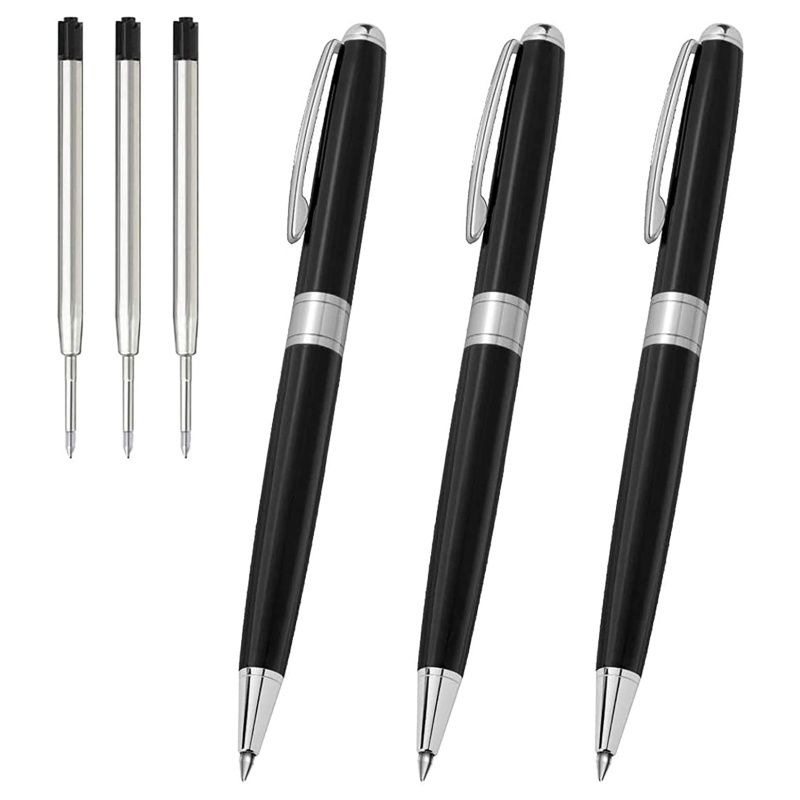 A PROFESSIONAL PEN | Don’t underestimate the little details. Just like how being able to hand somebody you meet a business card makes a big impression, so does having a quality pen. We acquire random pens from so many places, it can be tempting to just use one of those. I implore you to purchase a professional-looking pen. A professional pen will give the impression that A) you care about attention to detail, and B) you are well prepared and didn’t throw yourself together at the last minute. A professional pen says you are organized, timely, and stylish. They also don’t have to be expensive. This set of 3 executive pens costs $9.99 and comes in a variety of colors to suit your personal brand.
A PROFESSIONAL PEN | Don’t underestimate the little details. Just like how being able to hand somebody you meet a business card makes a big impression, so does having a quality pen. We acquire random pens from so many places, it can be tempting to just use one of those. I implore you to purchase a professional-looking pen. A professional pen will give the impression that A) you care about attention to detail, and B) you are well prepared and didn’t throw yourself together at the last minute. A professional pen says you are organized, timely, and stylish. They also don’t have to be expensive. This set of 3 executive pens costs $9.99 and comes in a variety of colors to suit your personal brand.
Always have something to write on. Nobody looks more disorganized than when they are scrambling for note-taking supplies. Imagine a rat, wildly scratching and burrowing into the attic insulation just as the family cat pops up looking for a snack, fluff flying everywhere. That’s what you look like when you’re frantically shuffling through your bag looking for something to write with, only to pull out a crinkled receipt and crusty pen, sans-cap. Not a good look.
We’ve already talked about pens, so next I suggest storing a crisp legal pad in your folio. Never look like a frantic rat again.
If everything goes swimmingly, you want to be prepared to accept the job and begin onboarding immediately. This means having all of your legal documents on hand so that there’s no opportunity for delay. I’m all for being ready to staple it down right now.
Your right-to work documents include anything that proves you are legally allowed to work in the country that you’re in. I’m based in the US, so for me this means my social security card and drivers license. This could also include a passport and visa if you are outside your home country.
ANCHOR
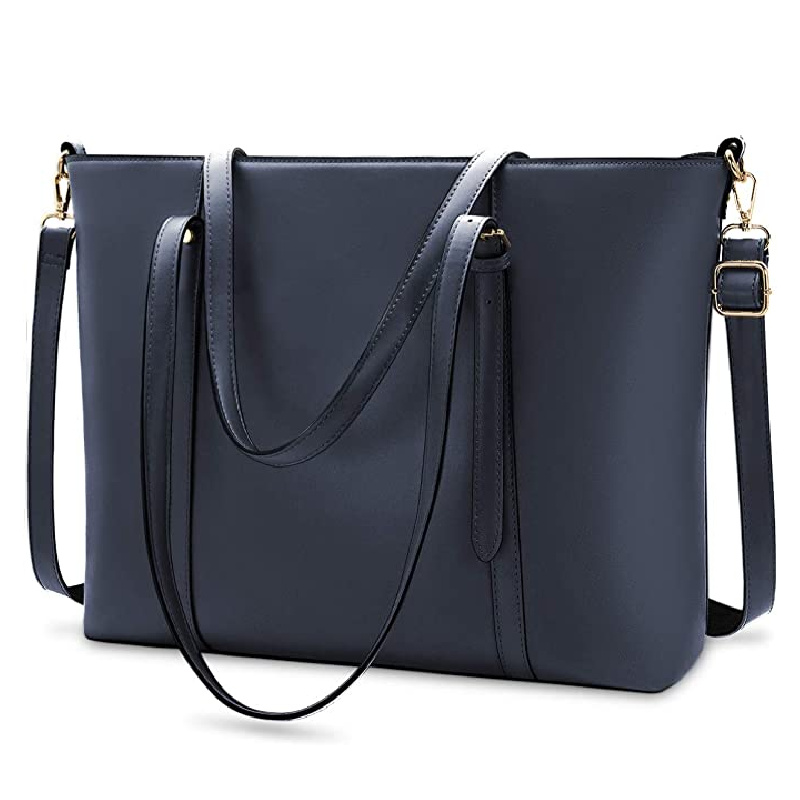 DRESS THE JOB | A good rule of thumb is to research what employees of the company wear to work everyday (not casual Friday, lol), and then dress a couple of steps up from that. The goal is to look professional, but also look like you will fit in with the company culture. One thing that is non-negotiable in my opinion, is a professional tote bag. Just like your folio mentioned above, even if you don’t have many “Very Important Items” to carry inside, just walking in with the bag and setting the bag down will pay dividends for your overall appearance.
DRESS THE JOB | A good rule of thumb is to research what employees of the company wear to work everyday (not casual Friday, lol), and then dress a couple of steps up from that. The goal is to look professional, but also look like you will fit in with the company culture. One thing that is non-negotiable in my opinion, is a professional tote bag. Just like your folio mentioned above, even if you don’t have many “Very Important Items” to carry inside, just walking in with the bag and setting the bag down will pay dividends for your overall appearance.
ANCHOR
During The Interview
Once you are seated in front of the interviewer, you may feel like the worst is yet to come. But truthfully, if you prepared effectively, most of the hard work is behind you.
Credentials will only get you in the door. Once inside, it is your personality that will secure the job for you. Plenty of applicants have the exact same, or better, credentials than you do. I don’t mean that to sound harsh. On the contrary, I say that to encourage you to dig deeper and think about why you are perfect for this job, rather than somebody else. Show enthusiasm for everything you have accomplished so far, and for what is to come. Nod your head, allow positive emotions to show on your face, use moderate hand gestures*, and give thoughtful, well-timed responses.
*My definition “moderate hand gestures” involves moving your hands and forearms only, while keeping your elbows at your sides and your shoulders relaxed.
 DEFLECT NEGATIVITY | Strive to keep all of your answers as positive as possible. If you must discuss a negative topic regarding yourself, be honest but concise with the negative parts and then focus heavily on the positive.
DEFLECT NEGATIVITY | Strive to keep all of your answers as positive as possible. If you must discuss a negative topic regarding yourself, be honest but concise with the negative parts and then focus heavily on the positive.
Sometimes you will be probed for information about former bosses or employers in order to determine how you will handle your words in sticky situations. Avoid getting (figuratively) backed into a corner by keeping other people out of your answers as much as possible. This also limits the opportunities for follow-up questions.
Think of it this way- in the Interview Universe, nobody ever does anything bad or wrong. They only do things that don’t necessarily jive with you. You’ll use the line, “It wasn’t the right fit, for me,” very often. Come prepared with multiple variations of that line.
ANCHOR
Tips For Phone Interviews
Phone interviews will become even more common moving forward. And while it may feel comforting to take the call in your PJ’s in bed, that is not the best approach. Best practice is to treat the phone interview no different than you would treat an in-person interview.
Dress & groom professionally | Perhaps it is unnecessary to iron creases into your pantsuit, but you should still dress in real clothes that give you a boost of confidence. I recommend a pair dark wash jeans and a button-up shirt. And don’t forget shoes. Brush your teeth, style your hair into a simple up-do, and apply the three basics of power makeup: brows, mascara, and red lipstick.
Mind your body language | Sit up straight in your chair and arrange your face into a neutral and pleasant expression. The interviewer may not be able to physically see you, but they will definitely be able to hear it in your voice if you are slumped over on the couch, rolling your eyes and scowling.
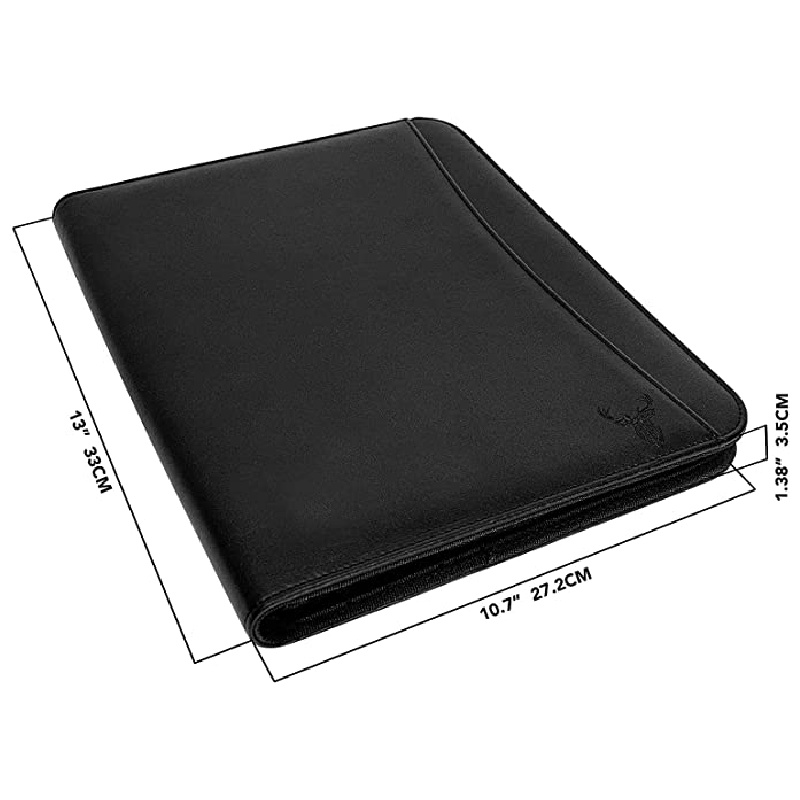 EVERYTHING YOU NEED IN ARMS REACH | Same goes for your interview materials. Pack your folio with the same care as you would if you were heading to the interview in person. Resume, cover letter, references, professional pen, legal pad, business cards, right-to-work documents. Zip it all up for your commute to the kitchen table to really get into a go-getter mindset.
EVERYTHING YOU NEED IN ARMS REACH | Same goes for your interview materials. Pack your folio with the same care as you would if you were heading to the interview in person. Resume, cover letter, references, professional pen, legal pad, business cards, right-to-work documents. Zip it all up for your commute to the kitchen table to really get into a go-getter mindset.
A glass of water | Speaking clearly through a phone takes a lot out of your throat. Keep some water nearby to stop your voice from sounding raspy.
A phone charger | I’m guessing you’re taking this call on your smartphone, right? We all know how phones tend to die at the most inopportune moments. Have a charger that you can quickly plug into and keep talking without missing a beat.
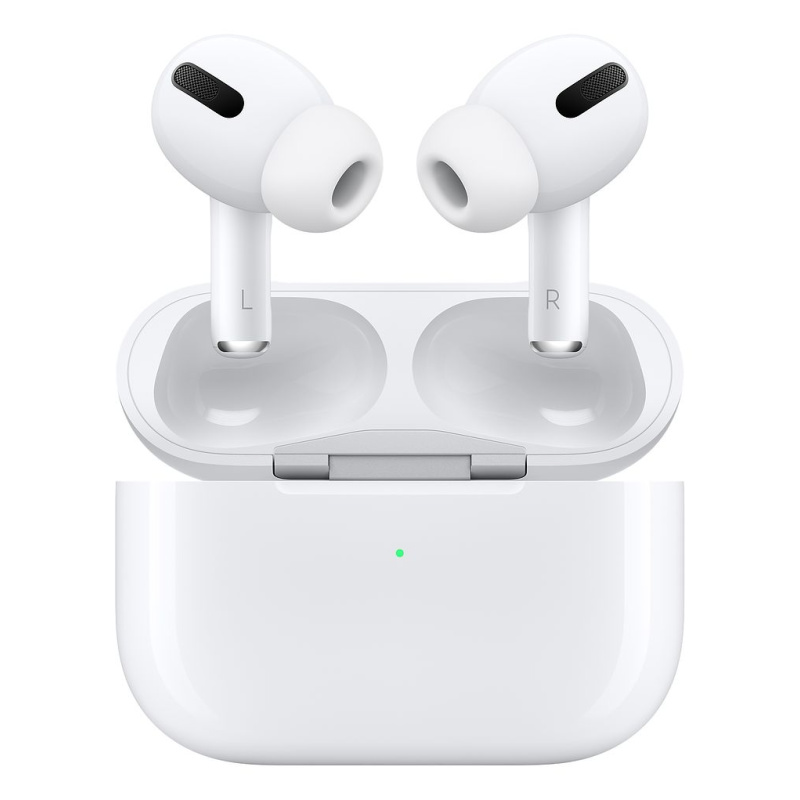 Bluetooth headphones | Optional, obviously, but here’s why I recommend a pair of high quality earbuds. First, they will help you block out outside sounds and distractions, so you’ll concentrate better.
Bluetooth headphones | Optional, obviously, but here’s why I recommend a pair of high quality earbuds. First, they will help you block out outside sounds and distractions, so you’ll concentrate better.
Second, you’ll hear the interviewer’s voice in both ears, which is helpful for picking up on nuances like tone of voice. You’ll have a better chance of understanding phrases that might otherwise sound garbled, minimizing times you have to ask the interviewer to repeat something.
Third, you can sit in a more natural interview position if you aren’t holding a phone up to your ear. You’re able to sit up straight with your hands folded on the table, making them available for hand gestures. These gestures will help you emphasize your points and sound enthusiastic over the phone.
A laptop | A bonus tool that you can’t have during an in-person interview. If you have one available, use it to your advantage in order to quickly look up any terms of bits of information you aren’t familiar with. I will always recommend having more information at your fingertips than less.
Not being in the same room means you must make an extra effort to listen carefully and respond thoughtfully. The interviewer cannot see your head nods, facial expressions, and eye contact as signs of engagement. You must use your words to prove that you are actively participating in the conversation.
Speaking loudly and quickly may appear animated and enthusiastic in person, but it can come off as anxious and frantic over the phone. Make an effort to speak at a conversational pace and tone. Calm your voice and slow down. Breathe deeply whenever it is not your turn to speak.
ANCHOR
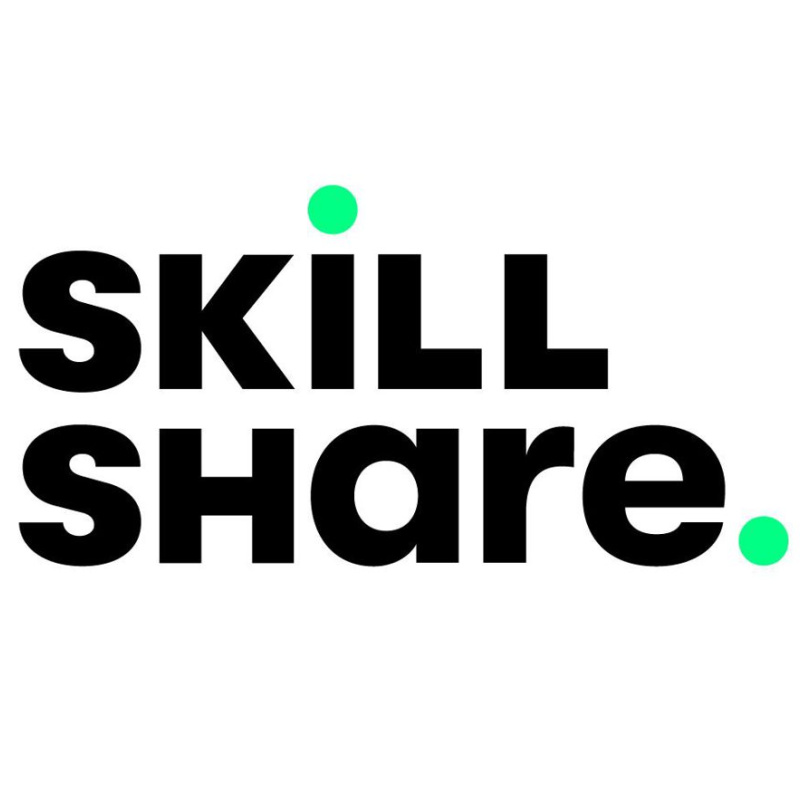 LEARN MORE WITH SKILLSHARE | If you are looking for an all-in-one resource where you can learn more about how to prepare for an interview, I suggest trying out Skillshare. Skillshare is incredible because the classes are created by independent creators who specialize in pretty much any topic you could ever want to learn about, including interviewing. If you sign up through the link below, you’ll receive a 2 Week Free Trial. Don’t worry, cancel anytime if you aren’t completely enthralled with all the learning going on. But I don’t think you’ll want to cancel. Go head, try it. There’s no risk!
LEARN MORE WITH SKILLSHARE | If you are looking for an all-in-one resource where you can learn more about how to prepare for an interview, I suggest trying out Skillshare. Skillshare is incredible because the classes are created by independent creators who specialize in pretty much any topic you could ever want to learn about, including interviewing. If you sign up through the link below, you’ll receive a 2 Week Free Trial. Don’t worry, cancel anytime if you aren’t completely enthralled with all the learning going on. But I don’t think you’ll want to cancel. Go head, try it. There’s no risk!
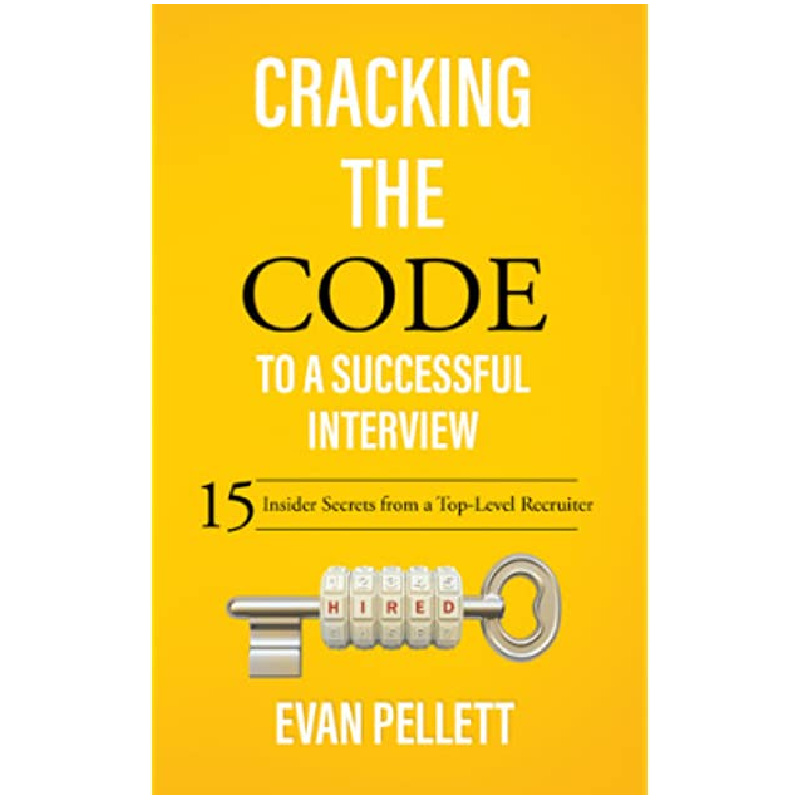 LEARN EVEN MORE | For more details and great tips about succeeding in your interview, I also recommend reading Cracking The Code by Evan Pellett. This book differs from the book mentioned above because it doesn’t help you answer specific questions, but rather helps you prepare yourself for the interview by deepening your understanding of what interviewers are really looking for. Hint: it is not always what you say that is important, it is how you say it.
LEARN EVEN MORE | For more details and great tips about succeeding in your interview, I also recommend reading Cracking The Code by Evan Pellett. This book differs from the book mentioned above because it doesn’t help you answer specific questions, but rather helps you prepare yourself for the interview by deepening your understanding of what interviewers are really looking for. Hint: it is not always what you say that is important, it is how you say it.
That’s all for today!
If you enjoyed this post, be sure to check out this one ➢ How To Get More Done Every Day || Increase Productivity
If you find this post interesting, informative, or just plain entertaining, tell me about it in the comments below! And don’t forget, sharing is caring. Share this post!
Till next time ♥︎
Sign up for my free monthly e-journal, The Millennial Maven Love Letters for exclusive content + millennial inspiration and lifestyle hacks. Plus get instant access to my library of on-the-go style downloads!
Pin This Post!
FTC- Not sponsored by any brands mentioned. I purchase all products myself. All opinions are my own. Some links may be affiliated.
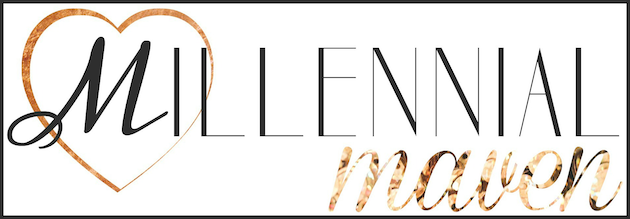
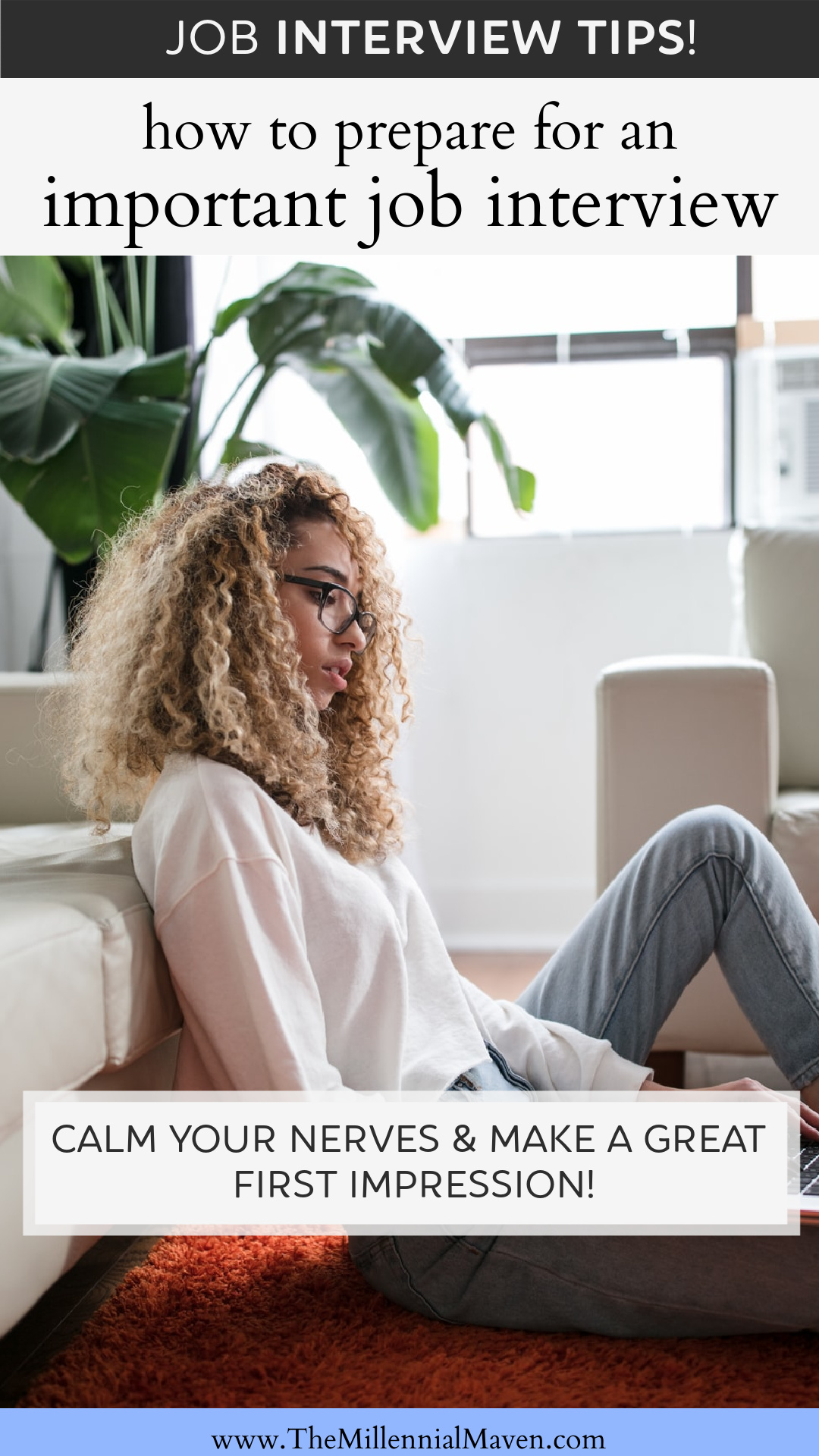
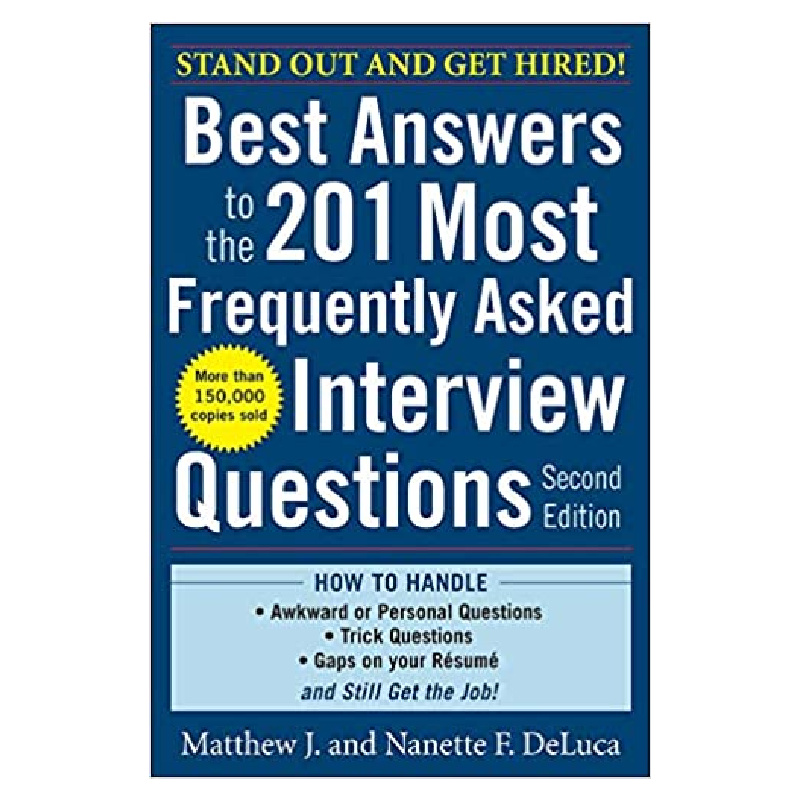
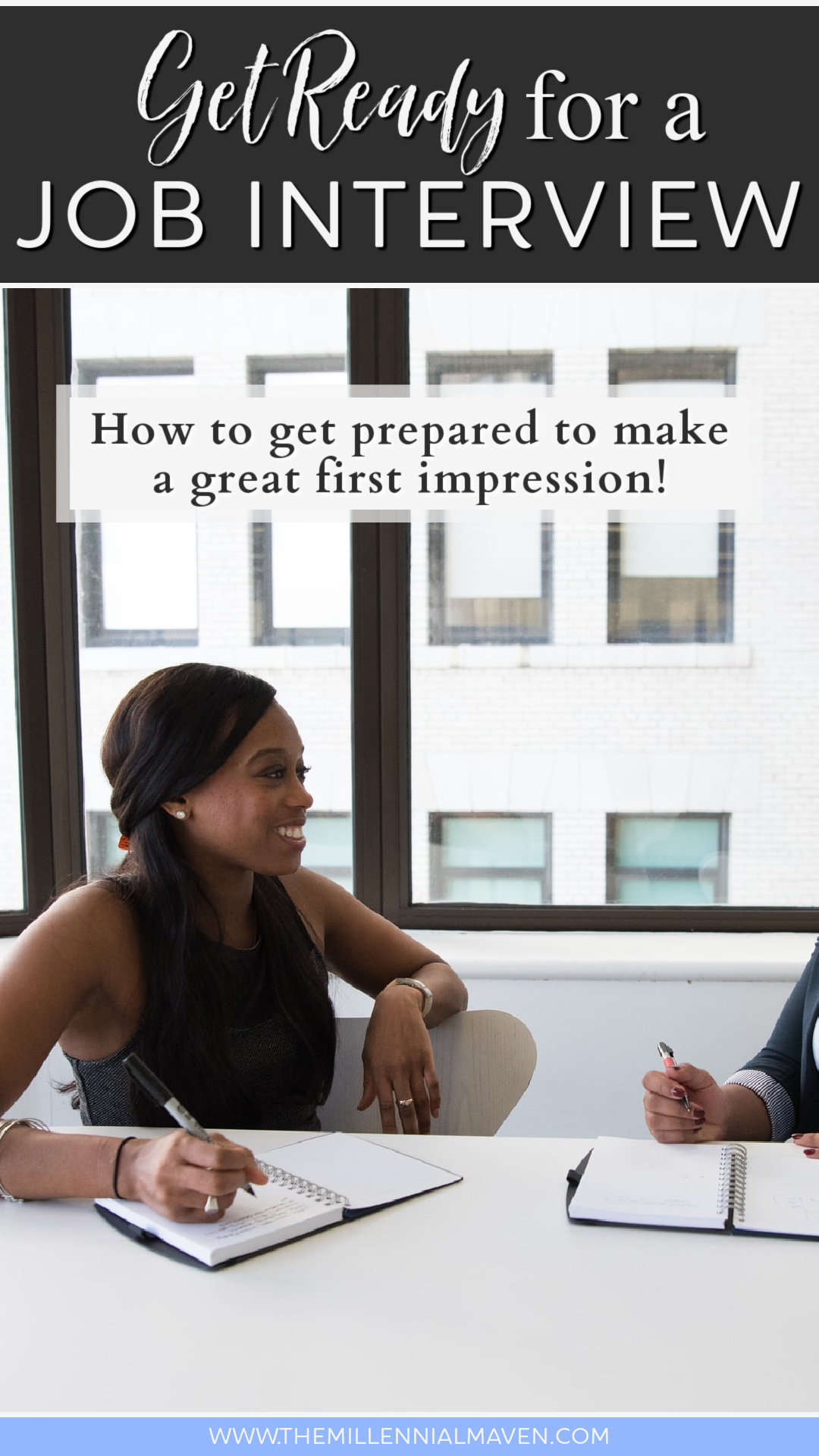
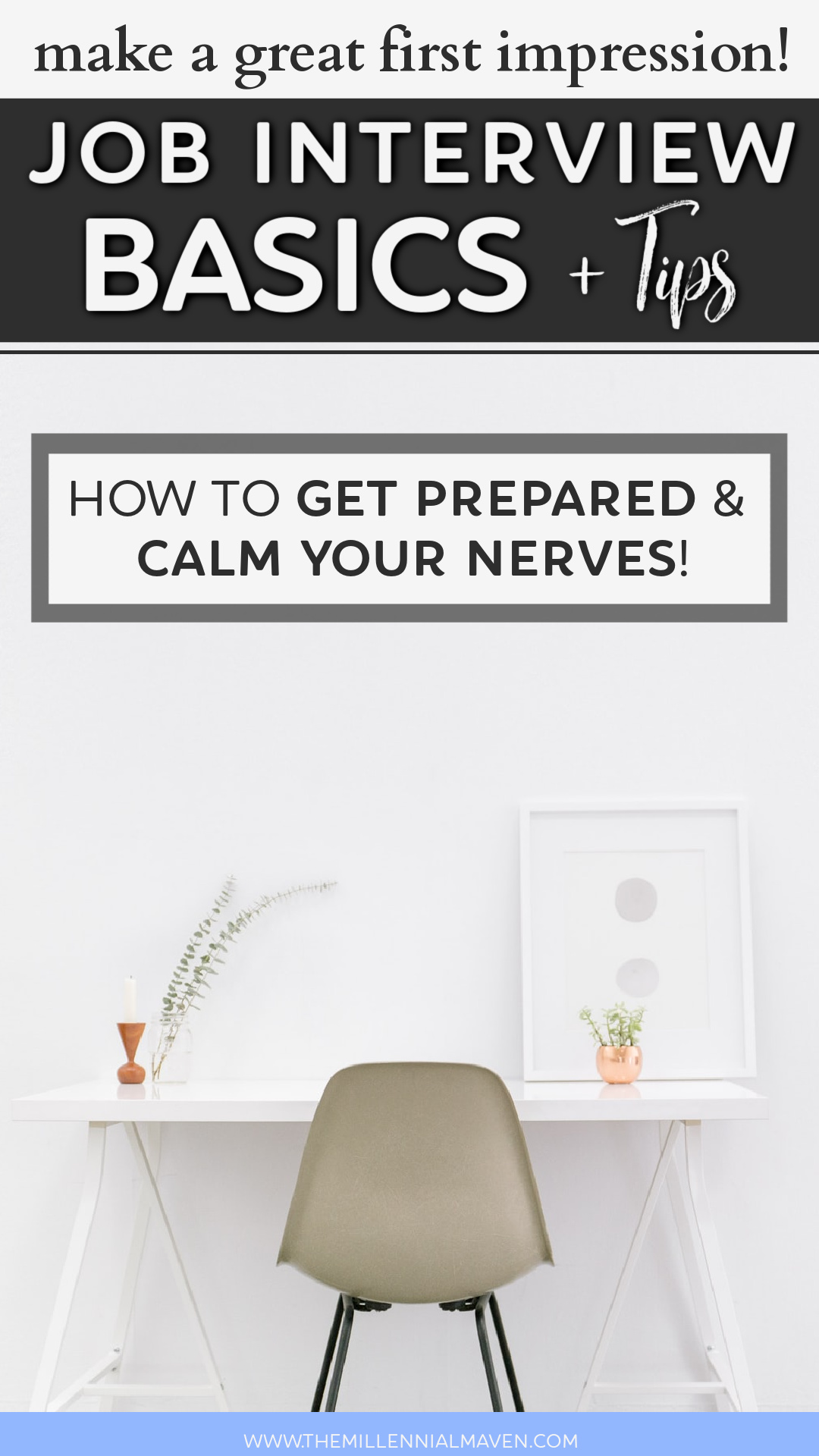
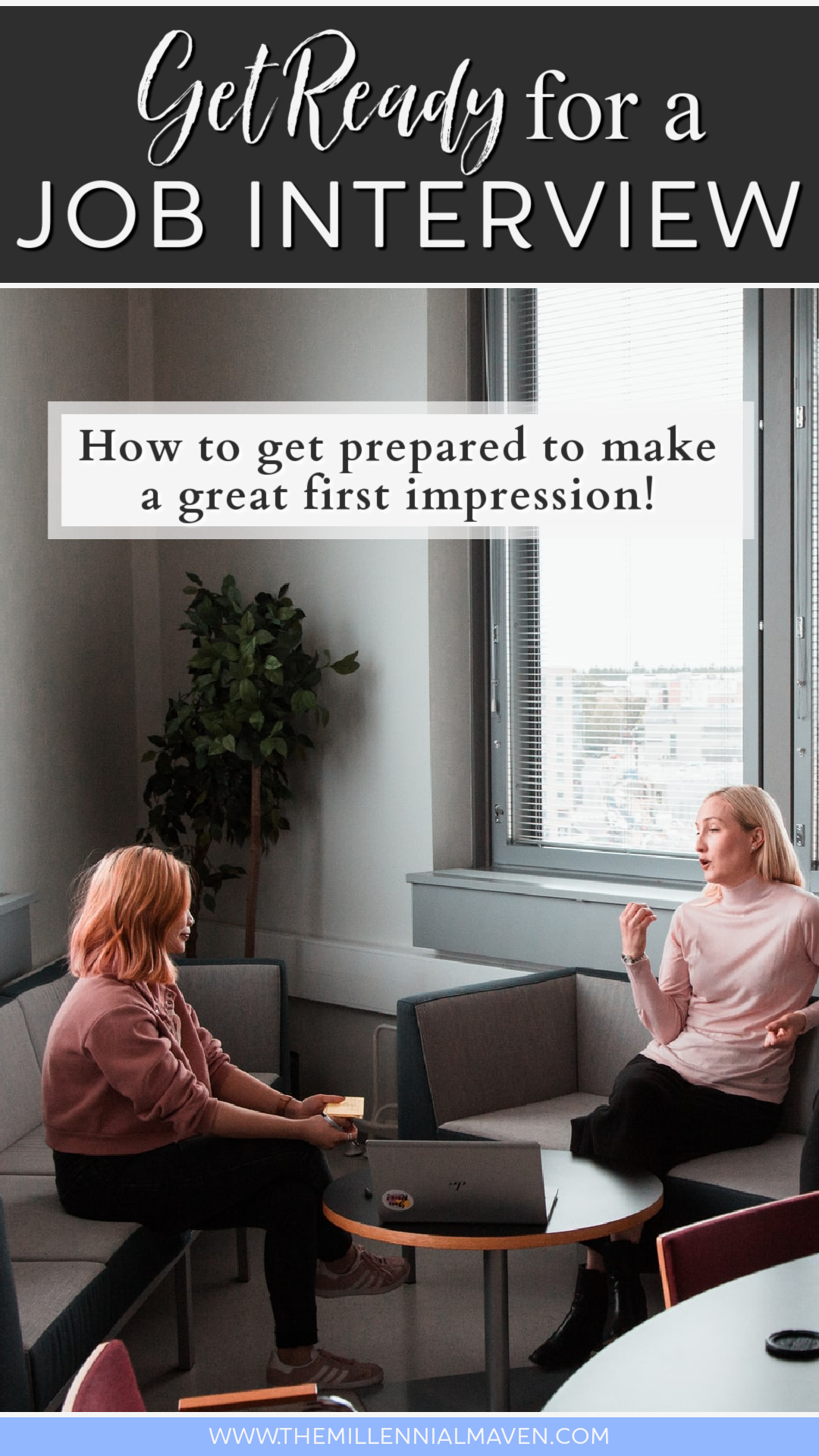
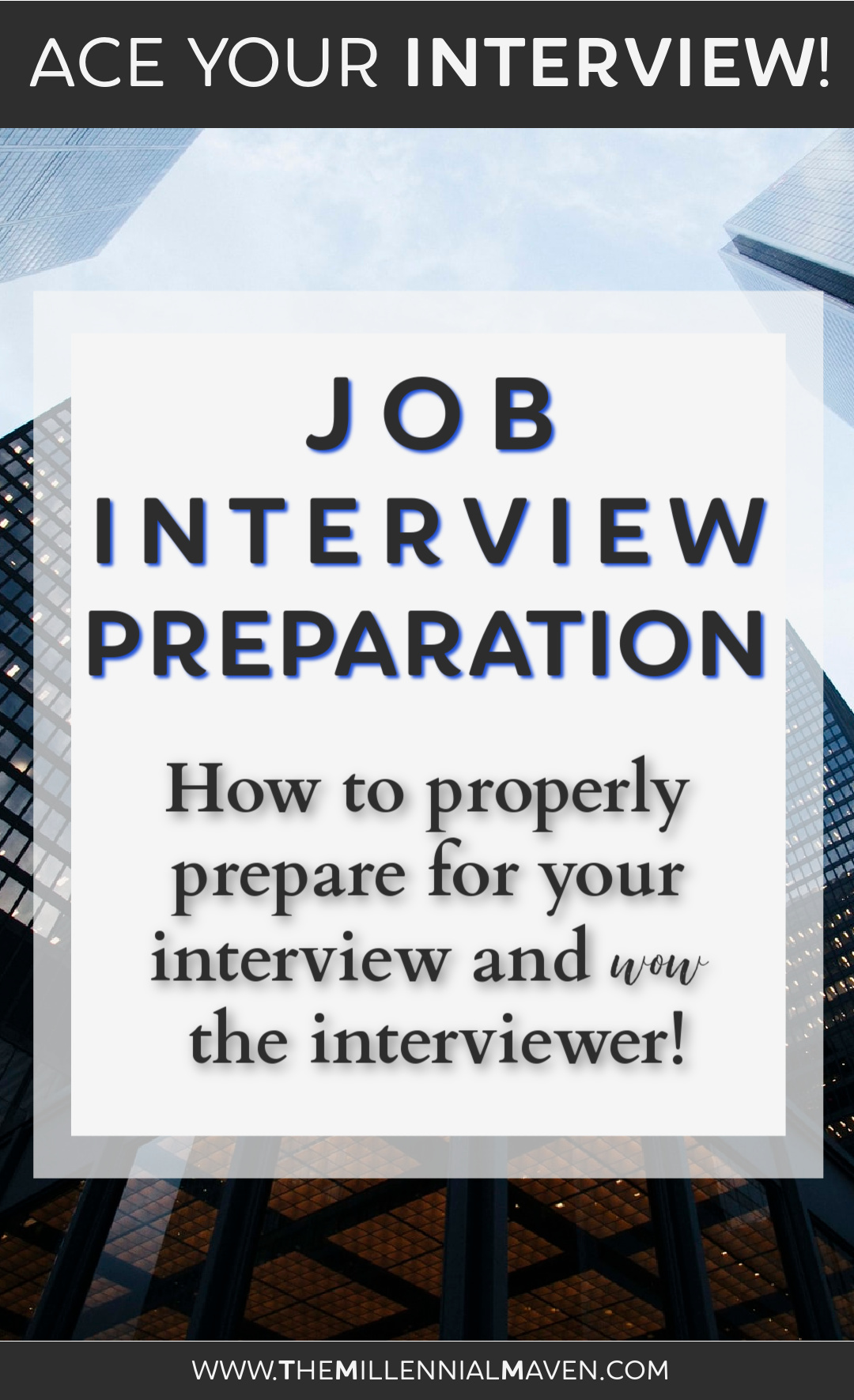
Great tips here. I’m looking to grow my Pinterest too, but there’s so much information out there its hard to make sense of it all. I’m taking notes! Thanks a bunch!
xx Bailey
I’m glad this post is helpful for you, Bailey! If you ever have any questions, don’t be afraid to email me. Thanks for reading 🙂 xo
It drive me crazy when I click on a pin thinking it goes to something good, only for it to be a broken link. Or worse, leads to a spammy page. Look before you pin people! Great post BTW
xoxo Dana
I totally agree! Especially because I want my Pinterest profile to be a good resource for others, and broken links & spam just don’t make for useful resources. I always recommend clicking on that beautiful pin before you pin it, (and become guilty by association, lol.) Thanks so much for reading, Dana 🙂 xo
Awesome tips for someone just starting out. I’m working on growing my Pinterest profile, and these are all things I need to think about. Thanks a bunch =)
I’m glad this is helpful for you, Elissa! Thanks for reading 🙂 xo
Though these are some good ideas, I wonder how long it will stay relevant since social media algorithms are constantly changing. Just in the time I’ve been on Pinterest (a few months) I’ve noticed a ton of profile design changes, and changes in my analytics levels.
Hi Brendan. To be honest, I don’t know a lot about how the algorithm works. All I know is what I’m doing right now that is helping my profile be seen by more people and gain followers every day. When things change, I’ll definitely update this post to reflect that! Thanks for reading 🙂 xo
I hear so much about vertical pins but I ignored it for the longest time. I’ve only recently redone all my pins so they’re vertical so I don’t see much of a difference yet, but I’m hopeful. Thank you for your great ideas!
-Ara
Don’t worry, Ara, I too waaaay too long to come around as well. I assumed it didn’t matter, because I figured it’s not like people are blind to horizontal pins, but they kind of are! Once I made all my pins vertical, I started seeing many more repins. It was a lot of work, but totally worth it! Thanks for reading 🙂 xo